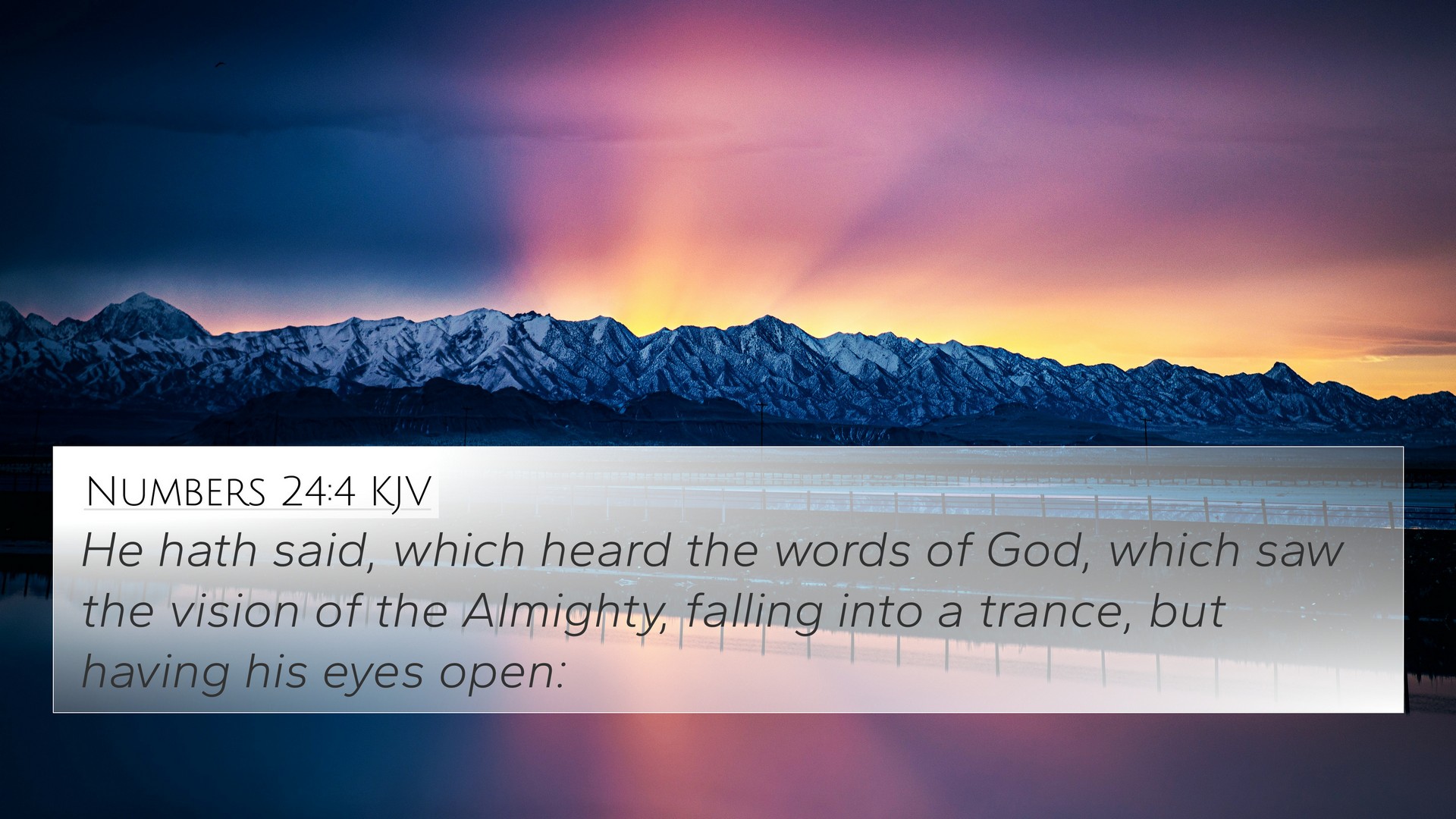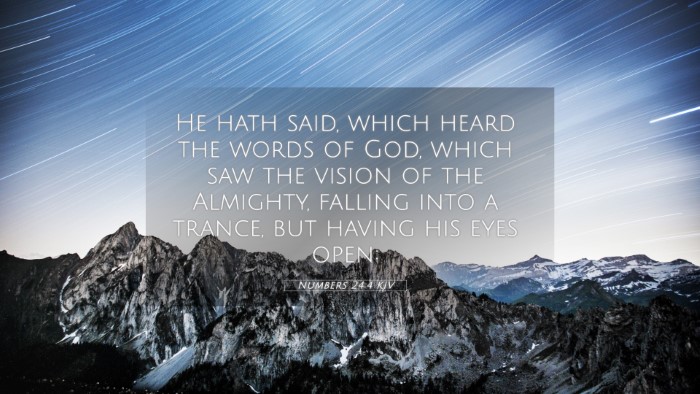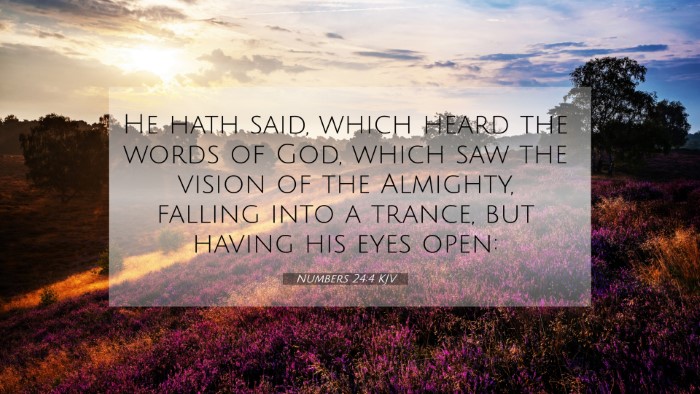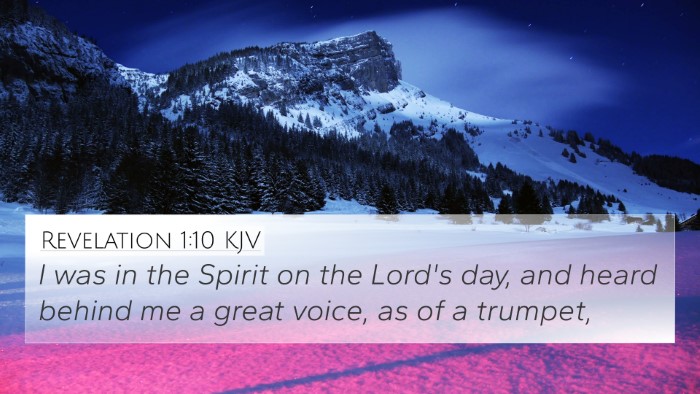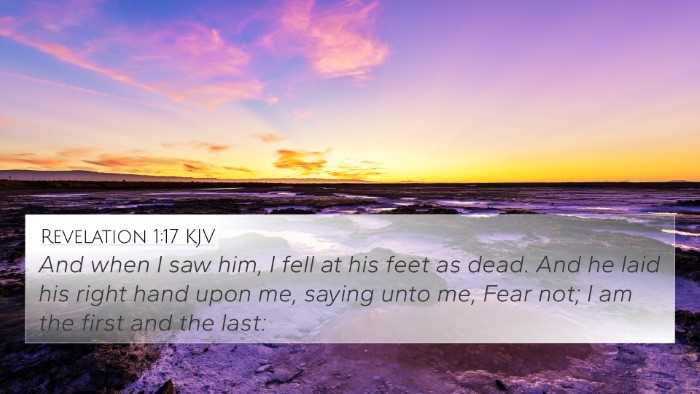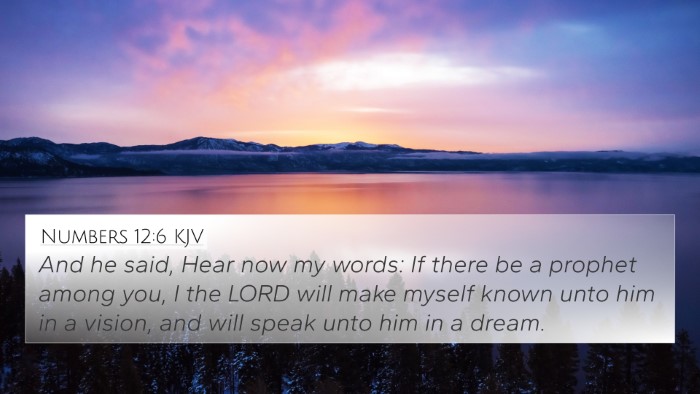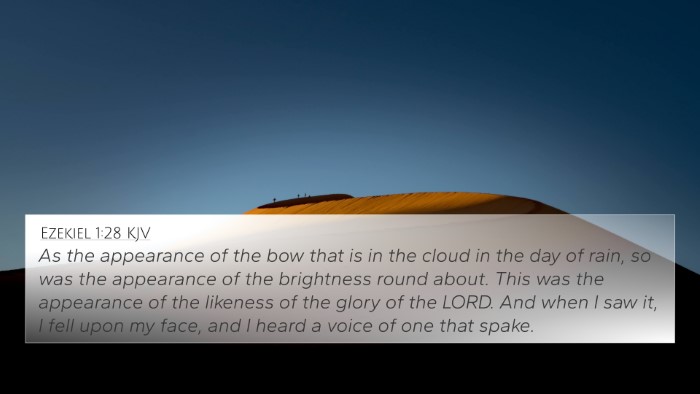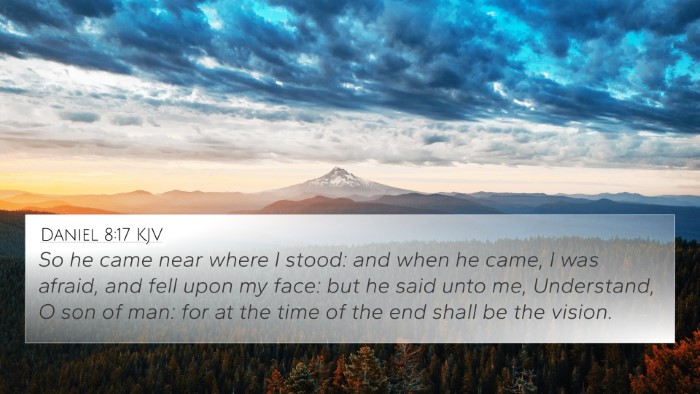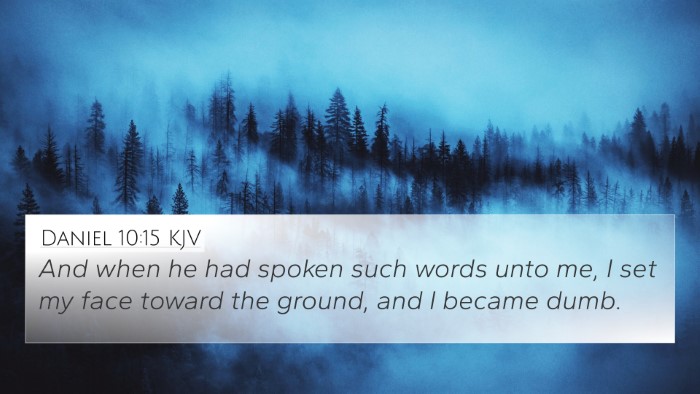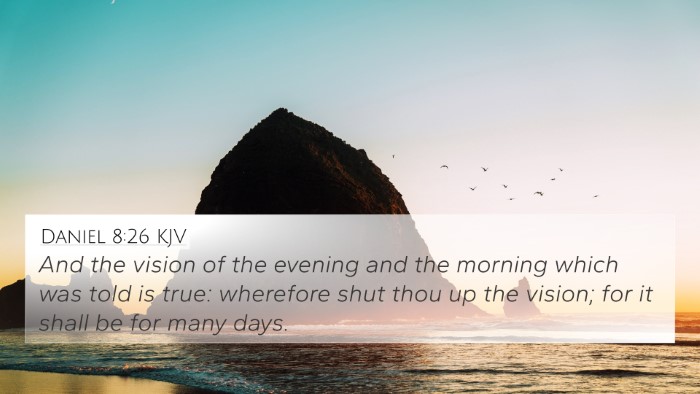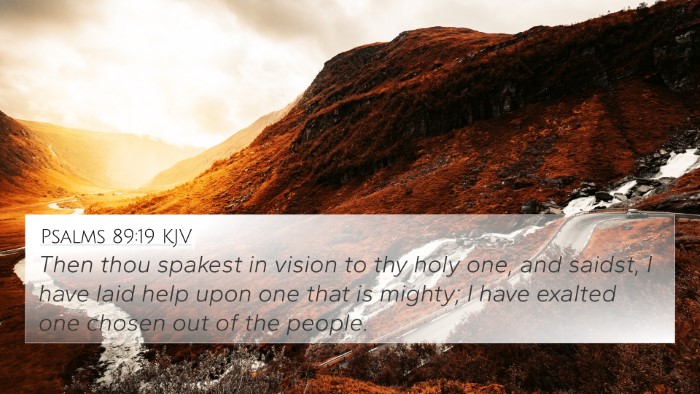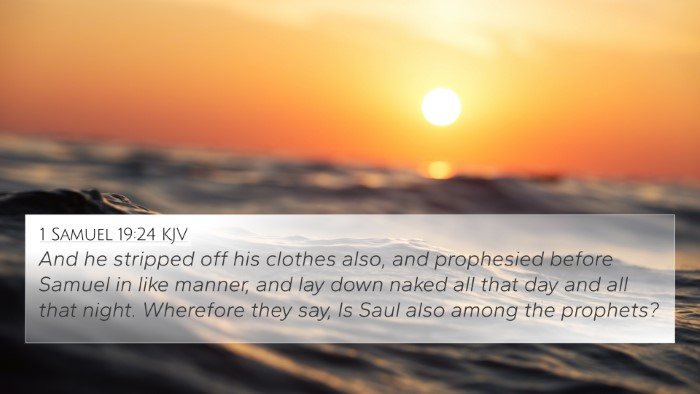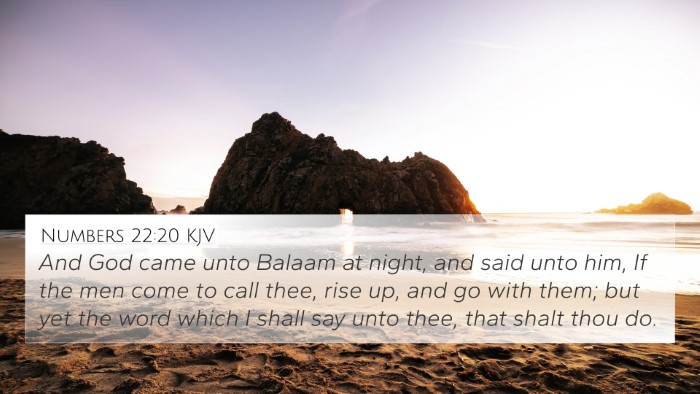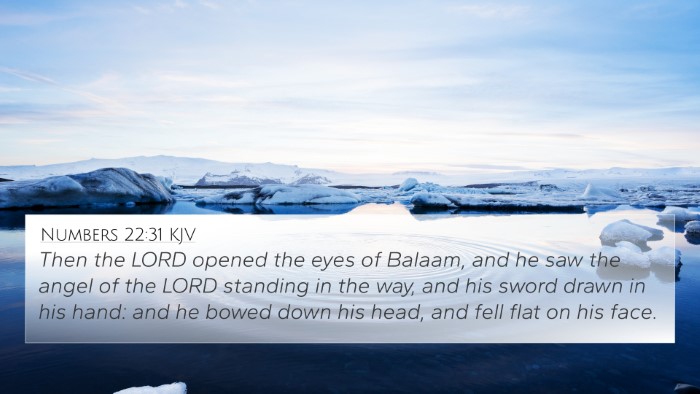Understanding Numbers 24:4
Verse: Numbers 24:4 states, "He hath said, which heard the words of God, and knew the knowledge of the most High, which saw the vision of the Almighty, falling into a trance, but having his eyes open."
This verse speaks of Balaam, a non-Israelite prophet, who is recognized to have received divine revelation. It indicates his unique connection with God and highlights the divine authority of the words he is about to proclaim.
Summary of Insights
Divine Revelation
Matthew Henry emphasizes that Balaam's visions were authentic, derived from direct communication with God. This denotes a significant prophetic role, where Balaam was not just any soothsayer but was actually privy to divine insight.
Albert Barnes notes the important aspect of having “his eyes open.” This signifies a deeply spiritual experience where Balaam was aware of the divine vision, setting him apart from others who might claim prophetic insight without actual revelation.
Adam Clarke explains the phrase "fell into a trance" as an indication of being overwhelmed by the Spirit of God, which allowed Balaam to comprehend profound spiritual truths. Such an experience indicates a deeper level of commitment and connection to God’s intended messages.
Cross-References
- 2 Peter 2:15: "Which have forsaken the right way, and are gone astray, following the way of Balaam the son of Bosor, who loved the wages of unrighteousness." - Discusses Balaam's choices and motivations.
- Revelation 2:14: "But I have a few things against thee, because thou hast there them that hold the doctrine of Balaam, who taught Balac to cast a stumblingblock before the children of Israel." - Connects Balaam's teachings to New Testament warnings.
- Hebrews 11:20: "By faith Isaac blessed Jacob and Esau concerning things to come." - A note on prophetic blessing and its continuity.
- Genesis 22:11-12: "And the angel of the Lord called unto him out of heaven, and said, Abraham, Abraham: and he said, Here am I." - Intersection of divine communication with prophets.
- Isaiah 53:1: "Who hath believed our report? and to whom is the arm of the Lord revealed?" - Highlighting the significance of revelation in understanding God’s will.
- Micah 6:5: "O my people, remember now what Balak king of Moab consulted, and what Balaam the son of Beor answered him from Shittim unto Gilgal; that ye may know the righteousness of the Lord." - A direct call to remember Balaam's interaction with God.
- Numbers 23:16: "And the Lord met Balaam, and put a word in his mouth, and said, Go again unto Balak, and say thus." - Reinforces the influence of divine speech through Balaam.
- 1 Corinthians 2:12: "Now we have received, not the spirit of the world, but the spirit which is of God; that we might know the things that are freely given to us of God." - The spiritual revelation aspect of prophecy.
- Ezekiel 1:1: "Now it came to pass in the thirtieth year, in the fourth month, in the fifth day of the month, as I was among the captives by the river of Chebar, that the heavens were opened, and I saw visions of God." - Another instance of a prophet receiving a divine vision.
- Acts 2:17: "And it shall come to pass in the last days, saith God, I will pour out of my Spirit upon all flesh: and your sons and your daughters shall prophesy, and your young men shall see visions, and your old men shall dream dreams." - The prophetic age connecting to divine communication.
Thematic Connections and Analysis
The connections between Numbers 24:4 and the verses listed above open an inter-Biblical dialogue, examining prophetic authenticity and divine communication across Scriptures. Such cross-referencing allows for a deeper understanding of how God has historically chosen to communicate through individuals like Balaam, as well as how that message applies through both Old and New Testaments.
Tools for Cross-Referencing
- Bible Concordance: A valuable tool that lists words and phrases in the Bible alongside corresponding verses.
- Bible Cross-Reference Guide: Compiles passages that illustrate similar themes or teachings.
- Cross-Reference System: A methodical approach to linking related Bible texts which aids in deeper studies.
- Cross-Referencing Bible Study Methods: Practices for harmonizing scripture with the aim of magnifying divine messages.
How to Use Cross-References Effectively
Understanding how to locate and utilize cross-references in the Bible can enhance one’s study and interpretation of scripture.
- Begin by familiarizing yourself with a Bible concordance or a Bible cross-reference guide.
- When analyzing a verse, consider its context and look for themes or key words that may link to other passages.
- For deeper studies, use comprehensive cross-reference materials that provide thematic supports across both Old and New Testaments.
- Engage with the inter-Biblical dialogue by comparing perspectives and interpretations, especially between prophetic texts and their New Testament citations.
Conclusion
Numbers 24:4 invites us to reflect on the nature of prophetic revelation and the divine connection Balaam experienced. Through careful analysis and cross-referencing with related scriptures, we gain insights that deepen our understanding of God's communication with humanity. As we study these connections, we not only discover the richness of the texts but also the consistency of God's message throughout the Bible.
